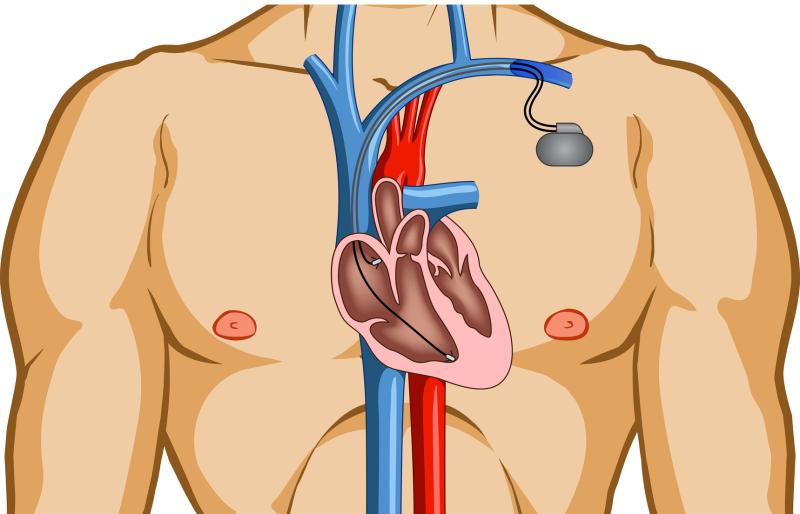
The novel myosin inhibitor mavacamten is well tolerated in patients with symptomatic nonobstructive hypertrophic cardiomyopathy (nHCM) and leads to a significant decrease in N-terminal pro–B-type natriuretic peptide (NT-proBNP) and cardiac troponin I (cTnI), which suggests improvement in myocardial wall stress, a study has shown.
“By altering the contractile mechanics of the cardiomyocyte, myosin inhibitors have the potential to modify pathophysiology and improve symptoms associated with HCM,” the investigators said.
This multicentre, double-blind, placebo-controlled, dose-ranging phase II study included 59 adult patients (mean age, 54 years; 58 percent women) with symptomatic nHCM (New York Heart Association functional class II/III), left ventricular ejection fraction (LVEF) ≥55 percent, and NT-proBNP) ≥300 pg/ml.
Participants were randomly assigned 1:1:1 to mavacamten at a pharmacokinetic-adjusted dose (targeting plasma levels: 200 ng/ml, n=19; 500 ng/ml, n=21) or placebo (n=19) for 16 weeks, followed by a washout period of 8 weeks. Initial dose was 5 mg daily with one dose titration at week 6.
Fewer participants on mavacamten had serious adverse events compared to those on placebo (10 percent vs 21 percent). Five patients on mavacamten had reversible reduction in LVEF ≤45 percent.
A substantial reduction in NT-proBNP was observed in the pooled mavacamten group compared to the placebo group (53 percent vs 1 percent), with geometric mean differences of –435 and –6 pg/ml, respectively (p=0.0005). The cTnI also had a significant decrease in the pooled mavacamten vs the placebo group (34 percent vs 4 percent), with geometric mean differences of –0.008 and 0.001 ng/ml, respectively (p=0.009).
“These results set the stage for future studies of mavacamten in this patient population using clinical parameters, including LVEF, to guide dosing,” the investigators said.